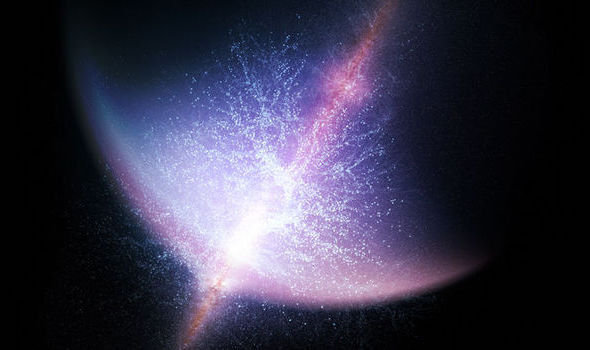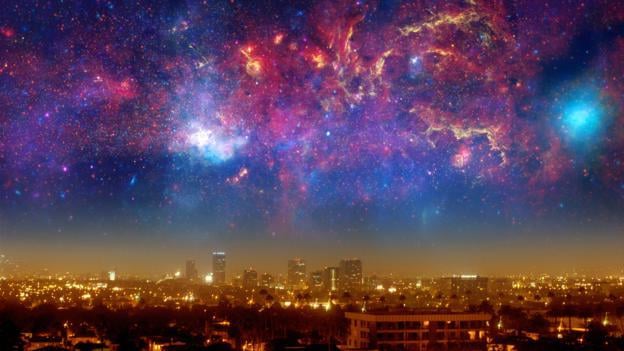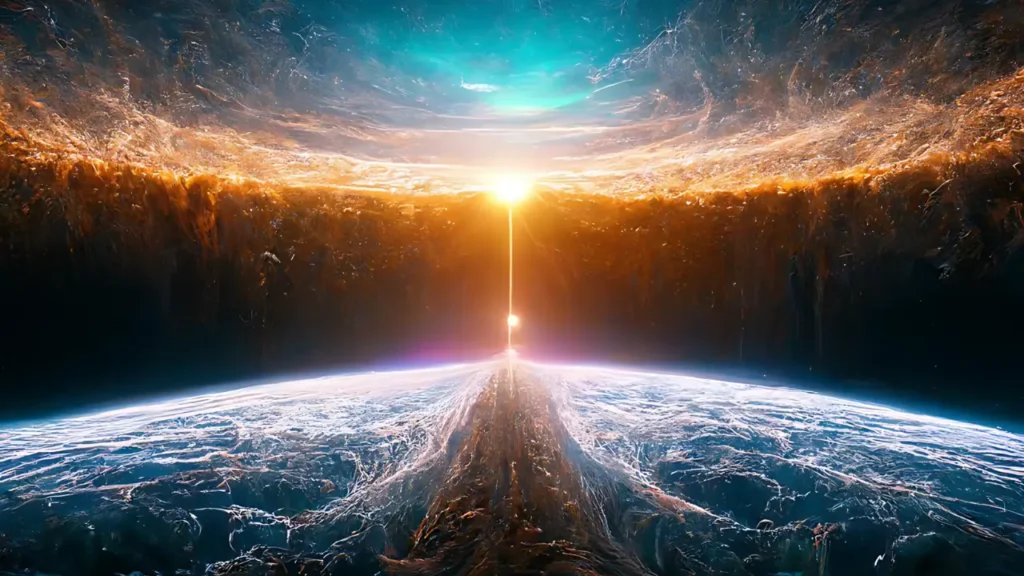The vastness of the cosmos, coupled with its deep mysteries, never ceases to intrigue us. Much of its allure stems from how little we truly grasp about its full nature. Just as we contemplate our individual end and what might follow, scientists find themselves equally captivated by the possible ultimate destiny of the entire Universe as it reaches its conclusion.
Through the years, the scientific community has put forth a range of theories—some profound, others seemingly outlandish—each deserving of thoughtful consideration.
1. The Concept of Intelligent Obliteration
Before the world witnessed the destructive power of nuclear weapons, the notion that a single bomb could annihilate an entire city was inconceivable. Yet, the horrific events at Hiroshima forever changed that perception, giving rise to the theory of “intelligent obliteration.”
This idea suggests that one day, an entity—whether human or otherworldly—could devise or unleash a force capable of destroying the entire Universe. While the notion of even a Moon-sized nuclear device affecting the cosmos may seem implausible, the haunting question lingers: are we truly alone as sentient beings within this boundless Universe?

2. The Ultimate Termination: A Simulated Existence
One of the most unsettling speculations about our reality is the possibility that life, as we experience it, is nothing more than an advanced computer simulation. Philosopher Nick Bostrom of the University of Oxford argues that as computational technology continues to evolve, humanity might eventually develop the capability to create entire simulated realities.
If our Universe is indeed such a simulation, it faces the ever-present risk that the program sustaining it might one day be switched off.

3. A Catastrophic Convergence with Another Universe
What might exist beyond the limits of our Universe? The answer could lie in the existence of other universes. If the multiverse theory proves accurate, there is a chance that we could one day collide with another universe, governed by entirely different physical principles. Such a collision, moving at nearly the speed of light, would be akin to the descent of an immense, shattering mirror, obliterating everything in its path.

4. The Great Contraction: A Reversal of Cosmic Expansion
Since the Big Bang, approximately 13.8 billion years ago, our Universe has been expanding. While many physicists believe this expansion is boundless, an opposing theory suggests that the Universe might one day begin to contract, similar to the way ocean waves retreat back into the sea.
This theory, often referred to as the “Great Contraction,” is supported by Einstein’s Theory of Relativity and posits that if such a reversal were to occur, it would not take place for billions of years, giving us ample time to reflect on our place within the cosmos.

5. The Ultimate Boundary: The Universe Confronts a Wall
Another compelling theory suggests that the Universe will continue to expand until it eventually encounters a physical boundary, comparable to a torrent of water colliding with the walls of a confined space. Some calculations estimate that this boundary, if it exists, could be reached in about 3.7 billion years. The likelihood of this scenario remains uncertain, but it is an intriguing possibility, with some experts speculating a probability of around 50%.

6. The Unavoidable Thermal Death
According to the second law of thermodynamics, this scenario envisions a Universe where entropy, or disorder, progressively increases in a closed system. As the Universe continues to expand, celestial bodies will drift further apart until, ultimately, entropy reaches its peak. At this juncture, energy would become uniformly dispersed, leading to the cessation of all activity. Stars would cool, matter would disintegrate, and the Universe would face a silent, desolate end—a chillingly quiet demise.

7. The Big Rip: The Final Unraveling of the Universe
An overwhelming 68% of the Universe is made up of a mysterious force known as “dark energy.” Prior to its discovery, scientists believed that the expansion of the Universe was either decelerating or had come to a halt. However, observations of supernovae led astrophysicists to conclude that this expansion is actually accelerating, driven by dark energy.
This accelerating expansion could ultimately lead to what is ominously called the Big Rip. In this apocalyptic scenario, dark energy would eventually stretch the fabric of the Universe to such an extreme that galaxies, stars, and even atoms would be torn apart, reducing everything to the smallest possible particles—a fragmented Universe dissolving into nothingness.




